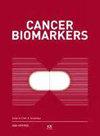Albumin-bilirubin score predicts trastuzumab resistance in HER2-positive breast cancer
IF 2.2
4区 医学
Q3 ONCOLOGY
引用次数: 0
Abstract
BACKGROUND: The albumin-bilirubin (ALBI) score is a novel indicator of liver function. Some studies showed that the ALBI score was a predictive marker for the prognosis and efficacy of drug therapy in malignancies. We aimed to assess the predicted role of ALBI score in the sensitivity to therapy with trastuzumab in patients with human epidermal growth factor receptor 2 (HER2) positive breast cancer (BC). The clinical data of 226 HER2-positive BC patients at the Harbin Medical University Cancer Hospital from January 2017 and December 2018 were retrospectively collected. The ALBI score was calculated with serum albumin and bilirubin before diagnosis. The associations between ALBI score and trastuzumab resistance were analyzed by logistic regression analyses. The patients with trastuzumab resistance had higher ALBI scores compared with the patients without trastuzumab resistance. Moreover, there were weak correlations between the ALBI score and lymph node status (P= 0.093). In addition, multivariate analysis revealed that the ALBI score was an independent prognostic factor for trastuzumab resistance in HER2-positive BC. High ALBI score is associated with trastuzumab resistance in HER2-positive BC. Future studies are needed.白蛋白-胆红素评分预测her2阳性乳腺癌的曲妥珠单抗耐药性
背景:白蛋白-胆红素(ALBI)评分是一种新的肝功能指标。一些研究表明,ALBI评分是恶性肿瘤预后和药物治疗效果的预测指标。我们的目的是评估ALBI评分在人表皮生长因子受体2 (HER2)阳性乳腺癌(BC)患者对曲妥珠单抗治疗敏感性中的预测作用。回顾性收集哈尔滨医科大学肿瘤医院2017年1月至2018年12月收治的226例her2阳性BC患者的临床资料。诊断前用血清白蛋白和胆红素计算ALBI评分。通过logistic回归分析ALBI评分与曲妥珠单抗耐药之间的关系。曲妥珠单抗耐药患者的ALBI评分高于无曲妥珠单抗耐药患者。此外,ALBI评分与淋巴结状态之间存在弱相关性(P= 0.093)。此外,多变量分析显示,ALBI评分是her2阳性BC患者曲妥珠单抗耐药的独立预后因素。高ALBI评分与her2阳性BC患者曲妥珠单抗耐药相关。需要进一步的研究。
本文章由计算机程序翻译,如有差异,请以英文原文为准。
求助全文
约1分钟内获得全文
求助全文
来源期刊

Cancer Biomarkers
ONCOLOGY-
CiteScore
5.20
自引率
3.20%
发文量
195
审稿时长
3 months
期刊介绍:
Concentrating on molecular biomarkers in cancer research, Cancer Biomarkers publishes original research findings (and reviews solicited by the editor) on the subject of the identification of markers associated with the disease processes whether or not they are an integral part of the pathological lesion.
The disease markers may include, but are not limited to, genomic, epigenomic, proteomics, cellular and morphologic, and genetic factors predisposing to the disease or indicating the occurrence of the disease. Manuscripts on these factors or biomarkers, either in altered forms, abnormal concentrations or with abnormal tissue distribution leading to disease causation will be accepted.
 求助内容:
求助内容: 应助结果提醒方式:
应助结果提醒方式:


